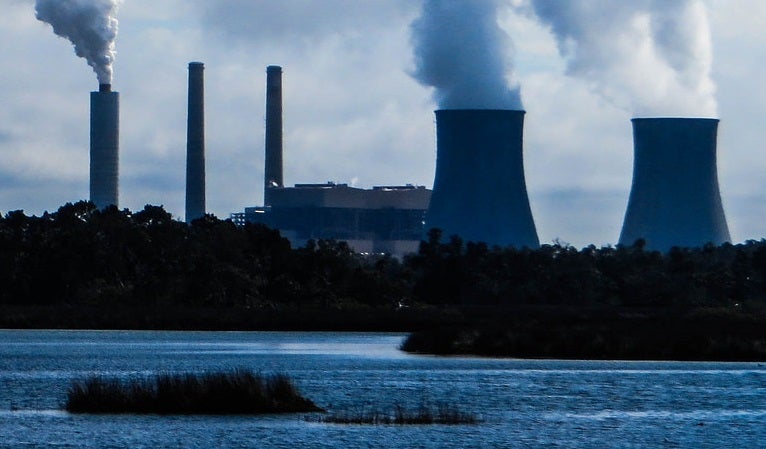
Hitachi has announced it will suspend work on the Wylfa Newydd nuclear plant in Anglesey, North Wales.
The Japanese firm had been in talks with the British Government since June 2018 but the parties were unable to reach an agreement. The company told the BBC it was suspending the project “from the viewpoint of its economic rationality as a private enterprise.”
The company notified the UK Government about the decision taken at the Hitachi Board meeting to suspend all its activities at the nuclear power plant site.
The decision to suspend Wylfa Newydd is expected to cost Hitachi £2.1bn, with a further £2.1bn in “extraordinary losses.”
The 2,900MW Wylfa Newydd power station was part of UK’s plans to offer low-carbon energy by replacing ageing nuclear stations and fossil fuel plants with modern nuclear plants and renewable energy.
The suspension of the project has put thousands of jobs at risk. Up to 9,000 people were expected to work on building two nuclear reactors; these jobs may be scrapped entirely if the project is officially cancelled.
How well do you really know your competitors?
Access the most comprehensive Company Profiles on the market, powered by GlobalData. Save hours of research. Gain competitive edge.

Thank you!
Your download email will arrive shortly
Not ready to buy yet? Download a free sample
We are confident about the unique quality of our Company Profiles. However, we want you to make the most beneficial decision for your business, so we offer a free sample that you can download by submitting the below form
By GlobalDataThe decision has raised fresh questions about the UK’s nuclear policy. The decision to suspend work at Wylfa come after plans for the Moorside nuclear plant in Cumbria were scrapped in November 2018, leaving Hinckley Point C in Somerset as the UK’s only nuclear reactor currently being built.
CBI reaction to Hitachi power plant project ‘suspension’
CBI chief UK policy director Matthew Fell said: “The suspension of Hitachi’s work on the nuclear power plant at Wylfa is a significant blow to the UK’s future energy supply plans […] it leaves in doubt the UK’s ability to replace its existing nuclear fleet. Nuclear power is a vital part of our energy mix, and new projects are needed to secure our future low-carbon, mixed energy supply […] The loss of new nuclear projects could leave us more heavily dependent in the long-run on fossil fuels, which could risk our legally binding climate targets. The government needs to build on its support for new nuclear power by giving individual projects the certainty they need, alongside measures that deliver a mix of low-carbon and renewable technologies.”
Institution of Mechanical Engineers Head of Engineering Jenifer Baxter added: “This is sad news for North Wales and the UK energy industry. The construction of the plant, and its operation, were expected to provide hundreds of highly skilled engineering apprenticeships and jobs in North Wales for decades to come. […] When built, it would have provided around 6% of UK electricity demand, all reliable low-carbon electricity, helping the UK meet its decarbonisation targets under the Climate Change Act. The reduction in nuclear power in the UK is a loss to our ability to decarbonise rapidly. This decision to pause development of one of our major nuclear energy sites combined with the decision to leave Euratom as part of Brexit will damage the long-term outlook for the nuclear manufacturing supply chain in the UK.”
UK Government reaction to Hitachi news
A spokesperson for the Department for Business, Energy and Industrial Strategy said: “Despite extensive negotiations and hard work by all sides, the government and Hitachi are unable to reach an agreement to proceed at this stage. This government is committed to the nuclear sector, giving the go-ahead to the first new nuclear power station in a generation at Hinkley Point C, investing £200m through our recent sector, which includes millions for advanced nuclear technologies. We are also reviewing alternative funding models for future nuclear projects and will update on these findings in summer 2019.”
They added that the UK will explore other options in renewable energy, stating: “The cost of renewable technologies are falling rapidly with the cost of offshore wind halving over the last two years to £57.50 per MWh […] In this context, nuclear must be delivered in a way that is value for money for consumers and taxpayers.”
The spokesperson also confirmed that: “There will be no implications to security of energy supply.”
Greenpeace reaction to Hitachi news
Campaigning group Greenpeace welcomed the news, echoing the government’s acknowledgement of other sources of energy by saying: “Hitachi’s confirmation that no solution has been found for its UK nuclear programme despite already spending £2bn on it tells you all you need to know about the economics of nuclear power.
“In the meantime renewable energy costs, especially offshore wind and solar, have plunged dramatically, while new smart technologies including storage have arrived on the scene. A clever move now would be for the government to accept that the nuclear bet didn’t pay off, stop holding back renewables and have an urgent rethink about the future of UK energy.”
Labour MP and chair of the Business, Energy and Industrial Strategy committee Rachel Reeves questioned the government’s handling of the matter, stating: “The announcement on Wylfa is not unexpected but it deals a heavy blow to the government’s energy policy and to jobs and the local economy. I’ve previously asked the secretary of state about the progress of the Wylfa project and this decision suggests the government has taken its eye off the ball on a crucial plank of their nuclear energy policy […] the government must come forward with a Plan B on how it is going to plug the gap left by Wylfa.”
With additional reporting by Umesh Ellichipuram.







